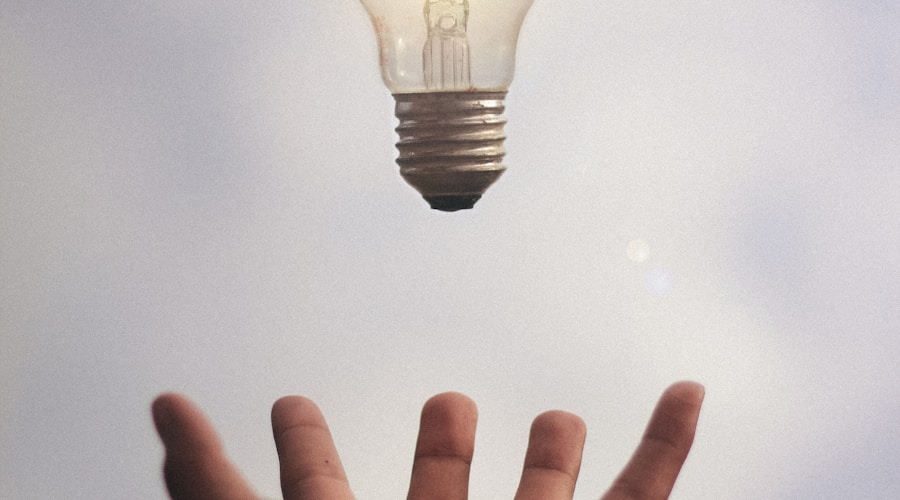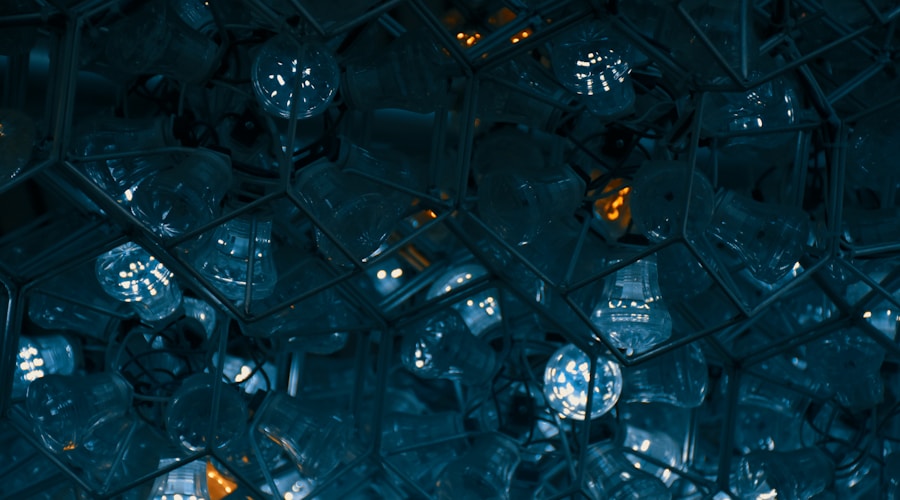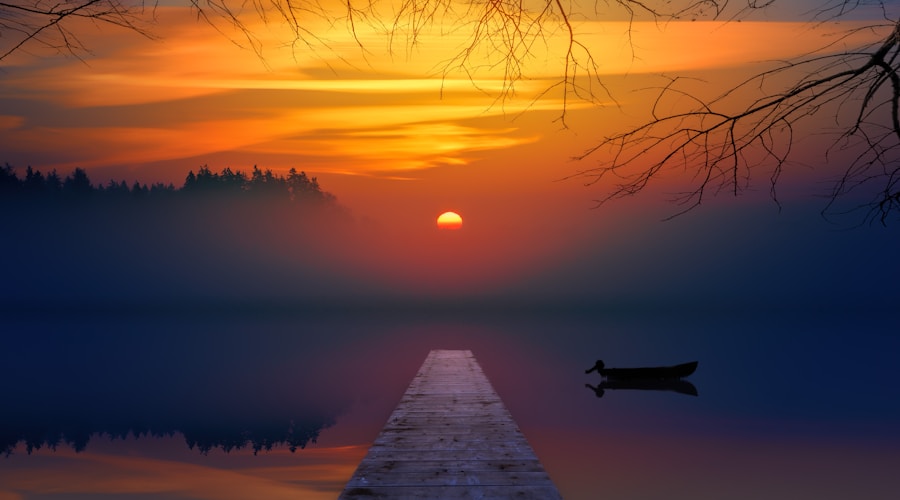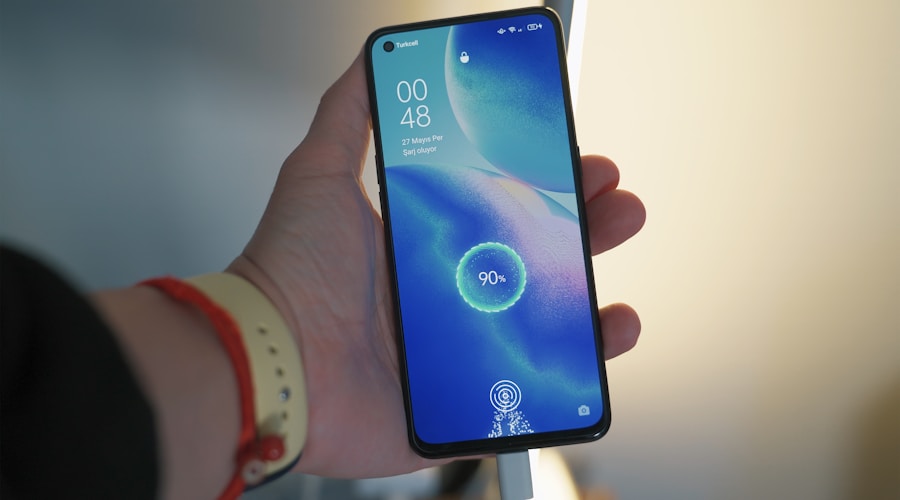Do you ever find yourself feeling completely drained of inspiration? Running out of creative energy is a common struggle for many people, especially those in creative professions. The constant demand to produce unique ideas and innovative solutions can take a toll on even the most creative minds. But what causes this phenomenon and, more importantly, how can you overcome it? In this article, we will explore the various factors that contribute to creative burnout and provide you with actionable strategies to boost your productivity and regain your creative spark. So, if you're tired of staring at a blank canvas or hitting a wall in your creative endeavors, keep reading to discover how you can reclaim your creative energy.
Understanding Creative Energy
Creative energy is the life force that fuels your passion, inspiration, and imagination. It is the driving force behind your ability to think outside the box, come up with innovative ideas, and express your unique voice. Without creative energy, your work can become stale, stagnant, and uninspired.
The Importance of Creative Energy
Creative energy is not just reserved for artists and designers. It is an essential part of our human experience, whether you are a writer, entrepreneur, teacher, or anyone engaged in problem-solving and innovation. It is the spark that propels you forward, helping you overcome challenges, and find new and exciting solutions.
The Power of Inspiration
Inspiration is the catalyst that ignites your creative energy. It can come from anywhere - a beautiful piece of artwork, a captivating story, or a thought-provoking conversation. As Albert Einstein said, "Creativity is intelligence having fun."1 When you feel inspired, your mind is open to new possibilities, and your creative energy flows freely.
The Role of Imagination
Imagination is the bridge between the known and the unknown. It is the canvas on which your creative energy paints vivid pictures, tells compelling stories, and sparks groundbreaking ideas. Without imagination, your creative energy lacks direction and purpose. As renowned psychologist Carl Jung once said, "Imagination is everything. It is the preview of life's coming attractions."2
Nurturing Your Creative Energy
Just as a fire needs oxygen and fuel to keep burning, your creative energy needs nurturing and care to stay alive. It requires a conducive environment, a positive mindset, and a healthy balance between work and play. By understanding the factors that influence your creative energy, you can prevent burnout and cultivate a sustainable creative practice.

What is Creative Burnout
Creative burnout is a state of mental and emotional exhaustion that occurs when the demands of creative work exceed your ability to cope with them. It is a feeling of being drained, uninspired, and overwhelmed, making it difficult to come up with new ideas or produce high-quality work. Creative burnout can affect anyone, from artists and writers to designers and entrepreneurs. It can strike at any point in your creative journey and can be incredibly frustrating and discouraging.
Signs of Creative Burnout
1. Decreased motivation and passion: You find it challenging to feel excited about your creative projects and struggle to find the motivation to continue working on them.
2. Mental and physical fatigue: Your mind feels foggy, and your body feels exhausted, making it difficult to concentrate and perform at your best.
3. Creative block: Ideas that used to flow freely now seem elusive, and you find yourself struggling to come up with fresh and innovative concepts.
4. Self-doubt and imposter syndrome: You question your abilities and feel like a fraud, doubting whether you have what it takes to create meaningful work.
5. Increased irritability and frustration: Small setbacks and challenges that used to be manageable now feel overwhelming and can lead to heightened emotions.
The Impact of Creative Burnout
Creative burnout not only hampers your ability to produce quality work but also takes a toll on your overall well-being. It can lead to increased stress, anxiety, and even feelings of depression. Dr. Archibald Hart, author of "Adrenaline and Stress," warns that burnout "can wreak havoc on both your mind and body". The negative effects of creative burnout are not limited to your professional life; they spill over into your personal relationships and can leave you feeling disconnected and unfulfilled.
The Importance of Addressing Creative Burnout
It is crucial to recognize and address creative burnout early on to prevent it from spiraling out of control. Ignoring or dismissing the symptoms can lead to prolonged periods of stagnation and can make it more challenging to bounce back. Taking steps to recharge and restore your creative energy not only benefits your creativity but also allows you to lead a more fulfilling and balanced life overall.
Factors that Drain Creative Energy
Creative energy can easily be drained by various factors in our lives. These factors can sap our motivation, creativity, and passion for our work. Understanding these drains is crucial in order to combat them effectively. Here, we will explore the most common factors that drain creative energy and how to address them.
1. Stress and Overwork
One of the biggest culprits when it comes to draining creative energy is stress and overwork. When you are constantly under pressure, your mind becomes overwhelmed, making it difficult to focus and come up with innovative ideas. Author and entrepreneur, Elizabeth Gilbert, explains, "Stress is not conducive to creativity. It shuts you down and limits your ability to think outside the box."
2. Negative People and Environments
Surrounding yourself with negative people and working in toxic environments can be detrimental to your creative energy. Negative individuals can drain your enthusiasm and bring you down. They may belittle your ideas or discourage you from pursuing your creative endeavors. As journalist, Maria Papova, writes, "Negativity and toxic people are creativity's kryptonite."
3. Lack of Inspiration and Novelty
Creativity thrives on inspiration and novelty. If you find yourself in a rut, doing the same tasks over and over again, it can be challenging to stay motivated and innovative. Your brain needs new experiences and fresh perspectives to fuel creativity. As author Twyla Tharp says, "Without a strong sense of curiosity, your creativity will certainly struggle."
4. Fear of Failure
Fear can be a major drain on creative energy. The fear of failure or criticism can paralyze your ability to take risks and think outside the box. As entrepreneur Seth Godin advises, "The cost of being wrong is less than the cost of doing nothing." It is important to remember that failure is a natural part of the creative process and should not be feared.
5. Lack of Self-Care
Neglecting self-care can also drain creative energy. When you don't prioritize your physical and emotional well-being, it becomes difficult to summon the energy needed to be creative. As author Anne Lamott writes, "Self-care is never a selfish act - it is simply good stewardship of the only gift I have, the gift I was put on earth to offer to others."
It is crucial to identify these draining factors in your life and take proactive steps to address them. Surround yourself with positive and supportive people, prioritize self-care, seek out inspiration and novelty, embrace failure as a learning opportunity, and find ways to manage stress and avoid overwork. By addressing these factors, you can reclaim your creative energy and unleash your full potential. As Maya Angelou once said, "You can't use up creativity. The more you use, the more you have." So take care of your creative energy, nurture it, and watch it flourish.

Coping and Addressing Creative Burnout
Creative burnout can be a frustrating and disheartening experience. It can leave you feeling depleted, unmotivated, and disconnected from your creative pursuits. However, the good news is that there are ways to cope with and address creative burnout. Here are a few strategies that can help you regain your creative energy and find inspiration once again.
Acknowledge and Accept: The first step in coping with creative burnout is to acknowledge and accept the fact that you are experiencing it. Sometimes, we may feel guilty or ashamed for not being able to consistently produce creative work. However, it is important to remember that burnout is a common experience, and it is not a reflection of your talent or worth as a creative individual. Give yourself permission to take a step back and prioritize self-care.
Take a Break: When you are feeling burnt out, it can be beneficial to take a break from your creative projects. Give yourself permission to rest and recharge. Engage in activities that bring you joy and relaxation, whether it's taking a walk in nature, reading a book, or engaging in a hobby that is unrelated to your creative work. This break will allow you to step away from the pressure and stress, and give your mind the opportunity to rejuvenate.
Seek Inspiration: Sometimes, creative burnout can be a result of feeling uninspired or stuck in a creative rut. Take the time to seek inspiration from different sources. Explore new art forms, visit museums, read books that are outside of your usual genre, or listen to music that evokes emotion. Surrounding yourself with different sources of inspiration can help reignite your passion and spark new ideas.
Practice Self-Care: Self-care is crucial for maintaining and replenishing your creative energy. Make sure you are taking care of yourself physically, emotionally, and mentally. Engage in activities that nourish your soul, such as practicing mindfulness or meditation, journaling, or engaging in self-reflection. Taking care of yourself will not only benefit your overall well-being but also contribute to your creative flow.
Connect with Others: Reach out to fellow creatives or join a community of like-minded individuals. Sharing your experiences and challenges with others who understand can provide support and encouragement. Collaboration and sharing ideas with others can also help reignite your creativity and provide a fresh perspective.
Remember, recovering from creative burnout takes time and patience. Be gentle with yourself and allow yourself the space to heal and renew your creative spirit. As artist and writer Elizabeth Gilbert once said, "Creativity is a wild mind and a disciplined eye."
Techniques to Boost Your Creative Energy
Now that you have a better understanding of creative energy and how it can be drained, let's discuss some techniques to boost it. By incorporating these techniques into your daily routine, you can keep your creative energy flowing and maintain a healthy level of inspiration and motivation.
Take breaks and allow yourself time to recharge: It's easy to get caught up in the whirlwind of creative projects and forget to take care of yourself. Give yourself permission to step away from your work and recharge. As Maya Angelou once said, "Each person deserves a day away in which no problems are confronted, no solutions searched for. Each of us needs to withdraw from the cares which will not withdraw from us."
Engage in activities that inspire and motivate you: Whether it's reading a book, listening to music, or visiting an art gallery, exposing yourself to different forms of creativity can invigorate your own creative energy. As Albert Einstein said, "Creativity is contagious. Pass it on."
Find a creative community: Surrounding yourself with like-minded individuals who share your passion for creativity can be incredibly uplifting. Dance artist Martha Graham once said, "Great dancers are not great because of their technique, they are great because of their passion." By connecting and collaborating with others, you can tap into a collective creative energy that can fuel your own inspiration.
Explore new environments: Shake up your routine by venturing into new environments. Whether it's taking a day trip to a nearby town or exploring a different neighborhood, exposing yourself to new surroundings can provide fresh perspectives and ignite your creativity. As author Elizabeth Gilbert put it, "If you're alive, you're a creative person. You just need to find your own path."
Practice mindfulness and meditation: Taking time to quiet your mind and focus on the present moment can have a profound impact on your creative energy. By practicing mindfulness and meditation, you can alleviate stress and anxiety, allowing your creative thoughts to flow freely. As writer Thich Nhat Hanh says, "Feelings come and go like clouds in a windy sky. Conscious breathing is my anchor."
Engage in physical activity: Moving your body and getting your blood flowing can help boost your creative energy. Taking a walk, practicing yoga, or engaging in any form of exercise can stimulate your brain and increase your overall well-being. As entrepreneur Richard Branson says, "Physical fitness is not only one of the most important keys to a healthy body, but it is also the basis of dynamic and creative intellectual activity."
Embrace failure and learn from it: Creative energy can wane when we fear failure or perfectionism. Instead of viewing failure as a setback, embrace it as an opportunity for growth and learning. As author J.K. Rowling shared, "It is impossible to live without failing at something unless you live so cautiously that you might as well not have lived at all, in which case you have failed by default."
Remember, boosting your creative energy is an ongoing process. By implementing these techniques and making self-care a priority, you can nurture your creative spirit and ensure it continues to thrive. As Pablo Picasso once said, "Inspiration exists, but it has to find you working." So, keep working, keep exploring, and keep embracing your creativity - the world needs it.

Restoring Balance for Sustained Creative Energy
When you find yourself experiencing creative burnout, it's essential to take steps to restore balance in your life and regain your sustained creative energy. Here are a few strategies that can help you in this process:
Self-care: Taking care of yourself is crucial in replenishing your creative energy. Make sure you prioritize self-care activities such as getting enough sleep, eating a healthy diet, and engaging in regular exercise. These activities not only rejuvenate your body but also nourish your mind, allowing for the free flow of creativity.
Unplug and recharge: Constant exposure to digital devices can be overwhelming and drain your creative energy. Take time to unplug from technology and reconnect with the natural world. Go for a walk, spend time in nature, or engage in activities that don't involve screens. Disconnecting from digital distractions allows your mind to wander and fosters new ideas.
Practice mindfulness: Mindfulness is a powerful tool for restoring balance and finding a sense of calm. Engaging in mindfulness practices, such as meditation or deep breathing exercises, can help you quiet your mind, reduce stress, and ignite your creative energy. As the famous poet Rumi once said, "Don't be satisfied with stories, how things have gone with others. Unfold your own myth".
Engage in hobbies: Pursuing hobbies outside of your creative field can provide a refreshing change of pace. Explore activities that bring you joy and allow you to express yourself in different ways. Whether it's painting, playing an instrument, or gardening, engaging in hobbies can reignite your creativity and expand your perspective.
Seek inspiration: Exposing yourself to new experiences, ideas, and perspectives can be an excellent way to restore your creative energy. Visit museums, attend concerts, read books, or travel to new places. Exposing yourself to different forms of art and cultures can stimulate your imagination and provide fresh inspiration6 .
Remember, restoring balance is a gradual process, and it's essential to be patient with yourself. Don't expect instant results, but rather embrace the journey of reconnecting with your creativity. As the renowned physicist Albert Einstein once said, "Creativity is intelligence having fun"7 .
Restoring balance in your life is not just limited to the professional realm. It extends into your personal life as well. Make time for meaningful relationships, indulge in activities that bring you joy, and create a balanced lifestyle that allows you to thrive both creatively and personally.
By taking the time to restore balance and replenish your creative energy, you'll find yourself experiencing a newfound sense of inspiration and vitality. Embrace the process, prioritize self-care, and watch as your creativity blossoms once again.
Case Study: Recovering Creative Energy
Let me share with you a real-life example of how someone successfully recovered their creative energy after experiencing burnout. Meet Sarah, a talented graphic designer who had been working tirelessly on multiple projects, juggling deadlines, and constantly pushing herself to create brilliant designs. Over time, Sarah began to notice the signs of creative burnout, feeling mentally and emotionally drained, and struggling to find inspiration.
Recognizing the need for change, Sarah took a step back and decided to prioritize her well-being and recharge her creative batteries. She knew that she needed to make some adjustments in her work routine and mindset to recover her creative energy. Here are the steps Sarah took to regain her spark:
Reflect on Your Passion: Sarah dug deep within herself to rediscover her passion for design. She reminded herself why she started on this creative journey in the first place. Reflecting on her passion helped reignite the fire within her and gave her a fresh perspective on her work.
Take a Break: Sarah took a much-needed break from her work, allowing herself to rest and recharge. She gave herself permission to indulge in activities that brought her joy and nurtured her soul. Whether it was spending time in nature, reading a book, or pursuing a hobby, taking time off helped her regain a sense of balance and renewed enthusiasm.
Seek Inspiration: Sarah actively sought inspiration from various sources. She explored art exhibits, attended design conferences, and actively engaged with other designers in online communities. Surrounding herself with like-minded individuals and exposing herself to new ideas and perspectives reignited her creative spark.
Practice Mindfulness: Sarah incorporated mindfulness practices into her daily routine. Whether it was through meditation, journaling, or simply being present in the moment, she found that being mindful helped reduce stress and enhanced her ability to tap into her creative flow.
Set Realistic Goals: Sarah learned the importance of setting realistic goals and managing her time effectively. She realized the value of creating a healthy work-life balance, setting boundaries, and prioritizing self-care. By setting realistic expectations for herself, she was able to prevent burnout and maintain a consistent level of creative energy.
Build a Support Network: Sarah reached out to her peers and formed a support network of fellow creatives. Having a community to lean on for guidance, feedback, and encouragement proved invaluable in her creative journey. She found solace in knowing that she was not alone in her struggles and that others believed in her abilities.
Sarah's journey to recovering her creative energy was not easy, but it was worth it. By prioritizing her well-being, seeking inspiration, and making conscious changes in her approach to work, she was able to reignite her passion and find a renewed sense of purpose.
Remember, you too can recover your creative energy. By taking proactive steps to address burnout, nurturing your creativity, and seeking support, you can revive your creative spirit and continue to produce your best work. As Sarah herself put it, "Taking care of your creative energy is not selfish; it's necessary for your own growth and success."
So, what are you waiting for? Take that first step towards reclaiming your creative energy today!

Conclusion
In a world driven by innovation and productivity, it comes as no surprise that creative individuals often find themselves running out of creative energy. This can lead to burnout, a state in which creativity and inspiration seem to dwindle, leaving individuals feeling drained and uninspired. Understanding the factors that contribute to this burnout is crucial in order to regain and sustain creative energy.
One major factor that drains creative energy is overworking. As psychologist Diane Fassel suggests, "Continuous and excessive work without sufficient breaks or time for self-care can deplete our creative resources." This highlights the importance of rest and balance in order to avoid burnout. Additionally, external pressures and expectations can contribute to the draining of creative energy. As entrepreneur Tony Hsieh states, "Tension pulls people apart. Slack pulls people together." Finding ways to navigate external pressures and create an environment of slack can help replenish creative energy.
To address creative burnout, it is essential to implement coping strategies and techniques to boost creative energy. This could include seeking out new sources of inspiration, practicing mindfulness and self-reflection, or engaging in activities that foster creativity, such as writing, painting, or gardening. As artist Georgia O'Keeffe once said, "I found I could say things with color and shapes that I couldn't say any other way... things I had no words for." These activities can serve as a form of therapy, allowing individuals to recharge and restore their creative energy.
In conclusion, running out of creative energy is a common challenge faced by many individuals. However, by understanding the factors that contribute to burnout and implementing coping strategies, it is possible to recover and sustain creative energy. As actress Audrey Hepburn wisely stated, "To plant a garden is to believe in tomorrow." By nurturing our creative energy, we not only inspire ourselves, but we also foster a sense of hope and possibility for the future.
2Carl Jung, The Red Book: Liber Novus (2009)
3Claire Bridges, In Your Creative Element: The Formula for Creative Success in Business (2018)
4Archibald D. Hart, Adrenaline and Stress (1996)
5Elizabeth Gilbert, Big Magic: Creative Living Beyond Fear (2015)
6Elizabeth Gilbert, Big Magic: Creative Living Beyond Fear (2015)
7Cal Newport, Digital Minimalism: Choosing a Focused Life in a Noisy World (2019)
8Eckhart Tolle, The Power of Now: A Guide to Spiritual Enlightenment (1997)
9Rumi, The Essential Rumi, New Expanded Edition (2004)
10Austin Kleon, Steal Like an Artist: 10 Things Nobody Told You About Being Creative (2012)
11Twyla Tharp, The Creative Habit: Learn It and Use It for Life (2003)
12Albert Einstein, Goodreads Quotes (n.d.)